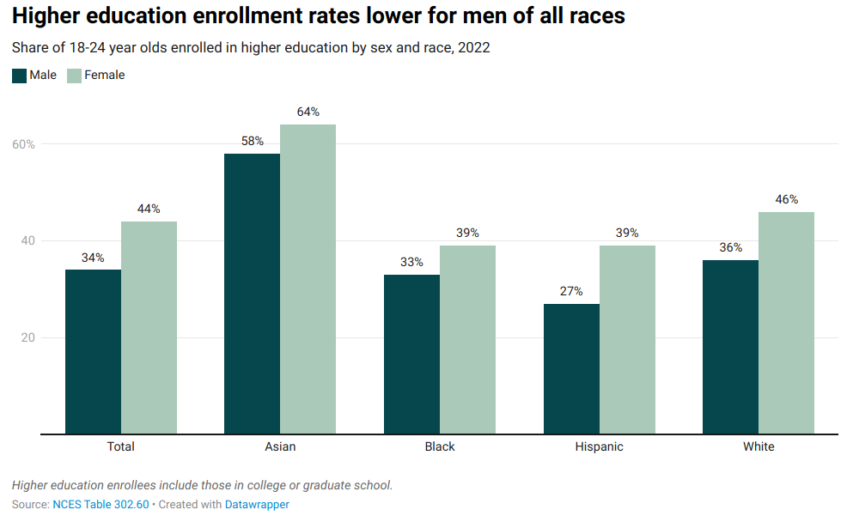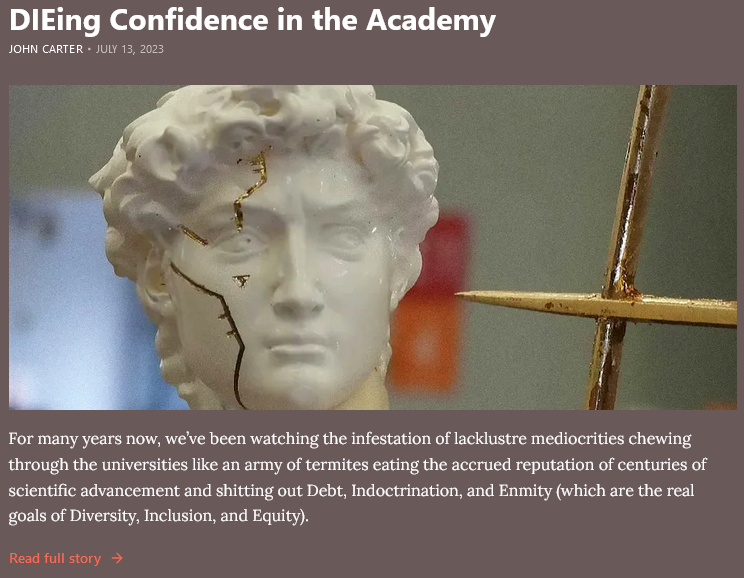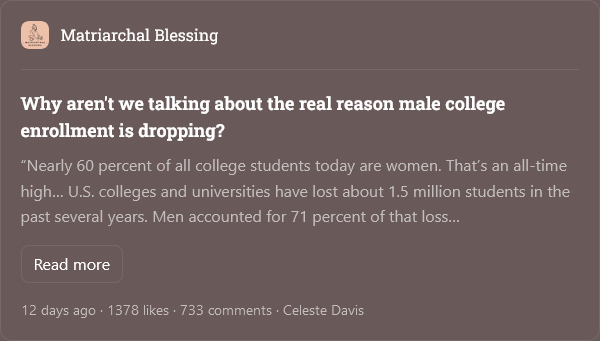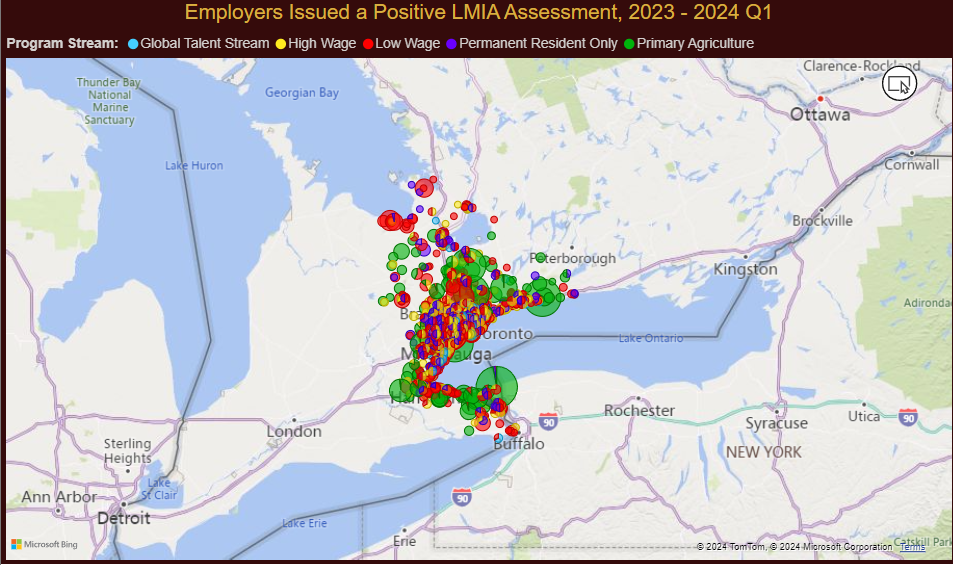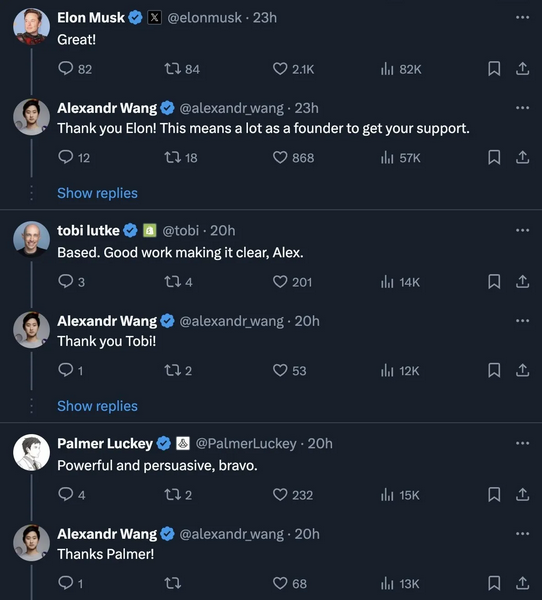The only text I vividly remember from my university semester in Classics is a poem by Hesiod entitled Works and Days. I read Homer, of course, and Virgil, and Ovid, and the three tragedians, but their texts have long become a blur of strange names, strange desires, inventive use of parataxis and the word “destiny”. But I remember Hesiod. Memory is a peculiar thing.
Hesiod is the seventh century BC management book writer. He didn’t write about digital strategy, but his poems drone on in the earnest monotone of an old-school sociology lecturer who — after years of correcting student papers — decides to try his hand at fine letters. Hesiod is ace at conveying fact, but not at re-inventing it. This makes him a fine chronicler, but not a poet. I cannot imagine anyone reading Works and Days today for anything other than anthropological curiosity.
I don’t remember all eight hundred lines of Works and Days — just five stanzas: one for each of the Five Ages of Men. First came the Golden Age, in which the land was bounteous, the forests were rich with game, and men were decent, happy, and favoured by the gods. But this state of bliss didn’t last. Cracks began to appear during the next generation with the emergence of the Silver Race — small crooks and delinquents who “could not keep from sinning and from wrongdoing one another”. Zeus didn’t like them and eventually killed them off. The third generation, the Bronze Race, managed to be an even greater disgrace, a bunch of hoodlums of great physical strength with “unconquerable arms which grew from their shoulders on their strong limbs.” (I find this image rather powerful. It reminds me of my gym on a Friday night.) Things looked up momentarily during the subsequent Heroic Age, as Zeus created a “god-like race of hero-men called demi-gods”. But everything went definitively, irrevocably tits-up in the fifth and final age: the Iron Age. Land became barren, crops wilted, stock died of disease; men were poor, men were bitter, son betrayed father, neighbour killed neighbour, chaos and treachery ruled.
As a story of decline and fall, it’s a nice one (although I’ve seen better). In terms of literary merit, it’s nowhere near Homer. So why am I harping on Hesiod? (Now do pay attention, as here comes the point of this essay.) The key variable between the time when men were happy and the time when they were not, according to Hesiod, is work. “In the Golden Age,” he writes, men “lived like gods … remote and free from … hard toil …” But in the Iron Age, “men never rest from labour …” Writing about the Iron Age — the age of hard work and misery — Hesiod wrote about his own time, but he also wrote about our time. We live in the Iron Age. It is a sad age. It is the age when people have to work. And work kills the spirit.
Elena Shalneva “Work — the Tragedy of Our Age”, Quillette, 2020-01-29.
November 26, 2024
QotD: Hesiod’s five ages of man
November 2, 2024
Maxime Bernier on Canada’s immigration crisis
This article has been posted at the Telegraph in the UK and mailed out by the PPC here in Canada, so I guess it’s okay to share it here:
Newsflash: Canada is in the process of falling apart.
No, it’s not because Quebec is once again threatening to hold a referendum on separation, although this may happen again in the coming years.
Our country is experiencing a series of crises because of the deliberate policy of mass immigration instigated by Justin Trudeau’s Liberal government soon after its election in 2015.
Last year, Canada’s population increased by almost 1.3 million people, or 3.2 per cent. This was the fastest annual population growth rate since the post-war years. The difference however is that this was not caused by a baby boom, since 97 per cent of the growth was due to international migration, mostly from Asia and Africa.
This includes not only immigrants per se – or “permanent residents” – but also so-called temporary foreign workers, foreign students, and asylum seekers. Although supposed to be temporary, the last categories have in fact become pathways to seek permanent residency.
Because of this, housing in Canada has now become completely unaffordable. Young couples who want to have children just cannot afford to buy a home with a nice backyard where they can raise them any more, with the result that our birth rate has dropped dramatically.
Our hospitals, social services, and infrastructures are being overburdened by this massive demographic tsunami.
Immigration is often justified by its supposed positive impact on the economy. But productivity and wages have been stagnant for a decade in Canada, as cheap immigrant labour is favoured by employers over capital investment and automation.
Canadian politics has been mired for months in scandals over foreign interference, in particular China and India. India has been the largest source of immigrants to Canada for several years. Last week, Canada and India expelled diplomats over allegations by the Trudeau government that Indian diplomats have been involved in attacks against Khalistani militants in our country, including the murder last year of one that India considers a terrorist.
Because of mass immigration, Canadian politics is more and more focused not on actual Canadian issues, but on ethnic, religious, and foreign issues and wars, with establishment politicians spending an extraordinary amount of time courting the votes of minority ethnic groups in suburban marginal ridings.
The third most important national party, the New Democratic Party that has kept the Trudeau minority government in power, is headed by Jagmeet Singh. A Sikh by background, he initially declined to condemn Talwinder Singh Parmar, the mastermind responsible for the 1985 bombing of an Air India plane in which hundreds of Canadians were killed. However Singh did change his stance when a Canadian inquiry concluded that Parmar was definitely behind the outrage.
For his part, the leader of the Conservative Party and very likely our next prime minister, Pierre Poilievre, is known for donning national or religious dress as he panders to members of various communities.
In 2018, as a then Conservative Member of Parliament, I posted a series of tweets that denounced what I called Trudeau’s “cult of diversity” which, I contended, would lead to the Balkanisation of Canadian society, and potentially to violence.
Almost daily scenes of Muslims attacking Jewish institutions, Sikhs burning the Indian flag, and Ethiopian factions fighting each other in the streets of our cities, have proven me right.
Publicly attacking these woke dogmas wasn’t allowed at the time in Canada though, and it provoked a huge outcry. Even my leader and colleagues in the Conservative Party denounced me, which led me to resign and launch a populist right-wing party which is broadly the Canadian equivalent of Nigel Farage’s Reform Party.
If you believe that more diversity is always good and always enriches your society, then it’s logical and inevitable that you will end up importing lots of people with incompatible values and attitudes from around the world, including religious fanatics and even terrorists, who can’t possibly integrate in a country with a European, secular Christian heritage.
That’s what we’ve been doing for years, and that’s why everything that historically made Canada what it was is rapidly being destroyed. I know there has been a similar trend in the UK and other European countries, but Canada went way further down this road.
Canada’s demise started when what was already a very diverse country (with Indigenous, French and British founding peoples, and many different regional cultures) fell for this radical version of multiculturalism instead of tempering it with a focus on shared values and attitudes, pride in our history, and in the achievements of Western civilisation.
Now, not only are our democratic institutions, our economy, and our social peace and cohesion, falling apart, but so are our very identity and reason to exist as a country.
All these trends are so overwhelming that, unable to deny the reality any more, the Trudeau government finally announced last week that they would be gradually lowering their immigration targets in the coming years instead of continuing to increase them.
Although this is a massive U-turn for this government, it is far from being a sufficient reduction, and a lot more will need to be done to repair the damage. Otherwise, I don’t believe Canada will survive the 21st century.
QotD: UBI discourages low-income workers
Not only does it have a high cost, UBI drains the labour force by discouraging work and boosting leisure time, says one big-picture study
Earlier this month, a cross-border team of North American economists published the results of a landmark study, probably the best and most careful yet done, of how low-income workers respond to an unconditional guaranteed income. Not so long ago this would have been a plus-sized news item in narcissistic Canada, for the lead author of the study is a rising economics star at the University of Toronto, Eva Vivalt. The economists, working through non-profit groups, recruited 3,000 people below a certain income cutoff in the suburbs of Dallas and Chicago. A thousand of these, chosen at random, were given a thousand dollars a month for three years. The rest were assigned to a control group that got just $50 a month, plus small extra amounts to encourage them to stay with the study and fill in questionnaires.
That randomization is an important source of credibility, and the study has several other impressive methodological bona fides. If you have an envelope to scribble on the back of, you can see that the payments alone were beyond the wildest dreams of most social science: most of the money was provided by the AI billionaire Sam Altman. But the study also had help from state governments, who agreed to forgo welfare clawbacks from the participants to make sure the observed effects weren’t obscured by local circumstances. Participant households were also screened carefully to make sure nobody in them was already receiving disability insurance. (Free money doesn’t discourage work among people who can’t work — or who absolutely won’t.) And the study combined questionnaire data with both smartphone tracking and state administrative records, yielding an unusually strong ability to answer difficult behavioural questions.
The big picture shows that the free cash — a “universal basic income” (UBI) for a small group of individuals — discouraged paying work, even though everybody in the study was starting out poor. Labour market participation among the recipients fell by two percentage points, even though the study period was limited to three years, and the earned incomes of those getting the cheques declined by $1,500 a year on average. There is no indication that the cash recipients used their augmented bargaining power to find better jobs, and no indication of “significant effects on investments in human capital”, i.e., training and education. The largest change in time use in the experiment group was — wait for it! — “time spent on leisure”.
Colby Cosh, “Universal basic income is a recipe for fiscal suicide (for so many reasons)”, National Post, 2024-07-30.
October 19, 2024
Changing gender balance in occupations and in higher education
At Postcards from Barsoom, John Carter ruminates on the likely downward path of many institutes of higher learning as current gender balance changes continue:
An occupation that flips from male to female dominance invariably suffers not only diminished prestige, but also a decline in wages … which, once again, makes sense in the context of sexual psychology. A man’s income is one element (and a big element) of a woman’s attraction to him, but the reverse is not true; if women are paid less, this does not really hurt their value in the sexual marketplace at all, and so they will push back against it much less than men would. This is probably what lies behind the tendency of women to be less forceful when negotiating salaries.
To the point: ever since the 1970s, women have overtaken and gradually eclipsed men within higher education. There is a gap in enrolment, consistent across racial groups:
[…]
Across all programs, at all academic levels, American universities recently reached the threshold of 60% of the student body being female.
This will be a disaster for academia.
Indeed, it’s already a disaster. About a year ago, I analyzed a Gallup poll which revealed that the confidence of the American public in the trustworthiness and overall value of the academic sector had declined precipitously over the course of the 2010s.
In that article I examined several factors contributing to this DIEing confidence in the academy: the explosive growth in tuition fees, even as continuous relaxation of academic standards dilutes the actual value of a degree; the deplorable state of scholarship, with endless revelations of fraud, a seemingly irresolvable replication crisis, and the torrent of psychotic nonsense that passes for ‘research’; the increasingly frigid social environment enforced by the armies of overpaid, sour-faced administrators. Almost all of these, however, are related in some way or another to the feminization of academia.
And it is probably going to get much worse before it gets better.
As discussed in this recent article by Celeste Davis of Matriarchal Blessing, research on male flight indicates that a 60% female composition represents the tipping point beyond which men perceive an environment as feminine, which then leads to a precipitous decline in male participation. Davis appears to be some sort of feminist3, but I want you to look past that and give her article a read; it is very thorough, well-researched, and thought-provoking (and also the direct inspiration for this article).
[…]
Universities are belatedly starting to notice that male enrolment is dropping fast, particularly among white men (I wonder why…), and are starting to make noises about maybe thinking about perhaps looking into ways of trying to recruit and retain more men (albeit, not specifically white men).
This seems unlikely to succeed.
Even if universities are successful in setting up programs to increase male recruitment, they will be fighting an uphill battle against the sexual perception that has already set in. Once something is coded as being a feminine hobby, it is extremely difficult to change that code. While it’s very easy to list examples of professions that have switched from male to female dominance, off the top of my head I have a hard time coming up with examples of the reverse. This suggests that female dominance tends to be sticky. There’s no reason to expect this will be any different with academia, either within individual programs, or across the sector as a whole.
This is an entirely different problem from the one faced by female entryism. In the initial phases of female entry, the primary difficulty faced by women is that it is simply more difficult to compete with men – in the case of athletics, effectively impossible. Women must therefore either work extremely hard, or the work must be made easier for them. In practice, since the 1970s we’ve seen both of these, with “working twice as hard as the boys” predominating in the early years, and assistance from special programs predominating later on.
By contrast, the central obstacle faced by anyone trying to attract men to a female-dominated environment is that men are deeply reluctant to enter. As a third of young men told Pew when asked why they didn’t attend or complete university: they just didn’t want to. It isn’t because they can’t compete with women. They can, usually with ease, but competition is pointless because it will gain them nothing. Special programs to assist men are beside the point; if anything, they work against you, because the implicit message with any special program for men is that they need help to compete with women … thereby making competition even more pointless. “You beat a girl but you needed help to do it”, is going to impress the girls even less than beating a girl unaided.
October 5, 2024
David Friedman on falling birth rates
In the west, generally speaking, female employment and economic power has been rising and birth rates have been falling, except among religious minorities. David Friedman provides some explanations:

“Tetra Pak® – Housewife at the dairy counter in a Swedish shop” by Tetra Pak is licensed under CC BY-SA 2.0 .
One possible explanation is changes in norms and legal rules that make mate search more difficult. An example is a norm against dating fellow employees and a stronger norm against dating someone who has authority over you or you have some authority over.
For many people, their job is the only context in which they routinely interact with lots of other people, the best environment for mate search. The interaction often provides a way of evaluating someone for characteristics such as honesty and competence as well as compatibility, much harder to do in the context of dating, harder still in computer dating. It works better for people who not only are fellow employees but are actually working together, which often means one just above the other in the office hierarchy.
The same issue arises in the university context. Undergraduates are free to date each other — mate search is arguably one of the main functions of college. Junior faculty members, likely to be unmarried, are commonly not supposed to date students, even students not taking classes from them, certainly not students who are. I am not sure what current norms are for graduate student/undergraduate interaction, expect graduate student/faculty romance to be at least somewhat frowned upon, especially if the faculty member has some authority over the student which is likely if they are in the same field, the context in which they are most likely to get know each other.
Another cause for declining birth rates might be changing norms of courtship. I have not been part of that market for over forty years but I gather from what younger people say online that many men believe that making advances that do not turn out to be wanted is not only embarrassing but dangerous, that they risk being accused of harassment or some related offense. In the student context, many men believe that if a romantic partner changes her mind she can get him into a great deal of trouble by taking advantage of a college disciplinary process heavily biased against men. I do not know to what degree that belief is true but many men believe it is, which could be expected to discourage courtship.
Along related lines:
Also, when I was working for a big time international consulting firm, they tried to come out with a formal rule that said that you were allowed to ask out a co-worker, but only one time. If they said no, you could never ask again. Apparently the Italians howled with laughter and insisted that if this rule was enforced in Italy, no one would ever have kids, as the typical Italian courtship approach involves like a dozen rejections before ultimately the woman finally gives in. (GoneAnon)
That cannot be the full explanation since Italian birth rates are down too. Since birth rates are down in all or almost all developed countries and many less developed ones, it is worth investigating how widespread the relevant norms are.
Housewife Becoming a Low Status Profession
For a very long time, the default system for producing and rearing children was a married couple, with the husband producing income and the wife in charge of running the household and rearing the children. Over recent decades, the woman’s role in that division of labor has become a low status activity, lower status than making a living in the marketplace, much lower than professional success.1 Being an unmarried adult woman used to be, in most contexts, low status, on the presumption that if she could have caught a man she would have. At present, in much of western society, that has reversed — being a married housewife is lower status than being an employed single woman.
…arguments from the stay-at-home moms I know, who say people are constantly giving them grief about it, and who are often looking for some part-time make-work job they can take just so people will stop giving them grief about being a stay-at-home mother (Scott Alexander)
It is possible for a married woman to have both a job and children or for an unmarried woman to have children, but the former is more difficult than for a full time housewife, the latter much more difficult.
1. For a much more detailed presentation of this explanation, along with arguments against a variety of alternatives, see It’s embarrassing to be a stay-at-home mom.
The Woodworker (1940) – Vocational training film
Charlie Dean Archives
Published Aug 10, 2013http://archive.org/details/Woodwork1940
Woodworking in mills, construction and cabinetmaking.
CharlieDeanArchives – Archive footage from the 20th century making history come alive!
October 1, 2024
September 18, 2024
August 22, 2024
QotD: The changing role of the Medieval housewife in England
The transition may also have driven broader cultural shifts. In 1523, Fitzherbert’s Boke of Husbandrie gave a list of a housewife’s jobs (“What warkes a wyfe shulde do in generall”) that included the household’s cooking, cleaning, laundry, and childcare, all of which are typically part of modern housewifery, but also milking cows, taking grain to the miller, malting barley, making butter and cheese, raising pigs and poultry, gardening, growing hemp and flax and then spinning it, weaving, winnowing grain, making hay, cutting grain, selling her produce at market — and, as necessary, helping her husband to fill the dungcart, plow the fields, or load hay. Roles were still highly gendered, but compared to eighteenth and nineteenth century household manuals this is a remarkable amount of time spent out of the house, and the difference holds even when you compare the work hired maids were doing in both periods. Around the time of the advent of coal, though, our descriptions of women’s work increasingly portray it as contained within the walls of the home — or, at most, in the dairy or the poultry yard. Of course social transformations are never monocausal, and the increasing specialization and mechanization that moved some production out of the household probably nudged things along, but Goodman suggests that “the additional demands of running a coal-fired household might have also helped push the idea that a woman’s place is within the home”. After all, if your cleaning takes twice as long, there’s simply less time available for all that agricultural labor and small-scale commerce.
Jane Psmith, “REVIEW: The Domestic Revolution by Ruth Goodman”, Mr. and Mrs. Psmith’s Bookshelf, 2023-05-22.
August 10, 2024
The GTA job situation is dire, yet the government keeps allowing special permits to bring in foreign workers
I try not to moan about my work situation here on the blog … nobody comes here for that … but despite my decades of experience in my technical field, it’s been a very long time since I had an interview (I’m ashamed to admit how long), despite all the jobs I’ve applied for. I have several strikes against me, of course, in that I’m an older slightly disabled white male, but it’s not just about me: Canadian employers in the Greater Toronto Area are still getting special permits to bring in foreign workers despite the huge numbers of un- and under-employed Canadian citizens and permanent residents in the GTA:
With job fair lineups regularly snaking around blocks and experienced professionals unable to secure roles despite applying to hundreds of them, it’s safe to say the job market is pretty terrifying right now for anyone looking for any type of work in the Toronto area.
Population growth has been outpacing employment gains, pushing the city’s unemployment rate to a dismal 7.4 per cent earlier this year (compared to Canada’s 5.8 per cent). So, it’s no wonder that residents are concerned to find how many local businesses are outsourcing labour to foreign workers.
A user-created map shared to Reddit last week shows which employers in the GTA have applied to hire overseas personnel via Labour Market Impact Assessments from 2023 on, which are supposed to be used only when there is “a need for a foreign worker to fill the job [because] no Canadian worker or permanent resident is available to do the job.”
While it seems like the above would be a rare exception given the current work crisis, the map shows quite the opposite: a shocking number of firms trying to use LMIAs to hire thousands of staffers, from food service and retail workers to engineering technicians and administrative assistants.
The data used is from Canada’s Open Government Portal, the page explains, adding that “there have also been instances where employers have illegally sold their approved LMIA positions to workers.”
The post has tacked up thousands of upvotes and a robust discussion of hundreds of comments, almost all from people who are angry and confused about why so many places are actively trying to recruit — and in many cases, successfully recruiting — people from outside of the country when so many here are desperately seeking jobs.
August 6, 2024
Britain’s immigration debate turns violent
At The Last Ditch, Tom discusses how the immigration issue has become the issue in modern Britain:
Margaret Thatcher famously quoted Kipling’s Norman and Saxon to President Mitterand of France in an EU meeting;
The Saxon is not like us Normans. His manners are not so polite.
But he never means anything serious till he talks about justice and right.
When he stands like an ox in the furrow – with his sullen set eyes on your own,
And grumbles, “This isn’t fair dealing”, my son, leave the Saxon alone.She was trying, perhaps not as delicately as her diplomats would have wished, to explain how the apparently calm British will react – eventually – to being wronged.
I spent twenty years in three other countries and worked closely in business with people from many more. I have often smiled to myself since returning when I hear British people speak of our unique sense of fair play. It’s not unique at all. Everyone has it. We do not own fairness. We do not own tolerance.
We do, however, traditionally pride ourselves on both and the way we see ourselves has shaped our reactions over the last twenty-five years as we welcomed more immigrants than in the previous two millennia. A few years ago I listened quietly to a Bangladeshi friend – a would-be human rights lawyer – talk about racism in our country. I asked her where in the world was a better place to live as a member of an ethnic minority. On reflection, she agreed with me that there is nowhere.
I am not saying we couldn’t treat each other better. Of course we could and should try. But let’s take a moment, as our streets burn and our elites condemn us as far-right racists, to be proud of how we’ve behaved in general towards so many new arrivals in such a short time.
[…]
One day history may reveal which politician in the capital of an old European empire realised there was a ready supply of workers in the former colonies. People who spoke our languages and were familiar with our systems of government – because both had been forced on their ancestors. It was a perilous idea that may yet prove to be the end of European civilisation but he must have looked like a genius to his peers.
The doors were opened and cheap labour flooded in. From the lofty heights where the elites survey us, it looked like a perfect solution. On the ground, not always so much. Mostly we’ve been welcoming, accepting and tolerant. We’ve sometimes even gone beyond tolerance and flattered our new arrivals that they’ve enhanced our magnificent old culture with their jerk chicken and curries.
Yet already when I was a youngster practising criminal law problems had begun to emerge. A custody sergeant with whom I used to chat when waiting to see clients in the cells told me suicide rates among Muslim girls in our Midlands city were disturbingly high. Asked why that was, he said they were not suicides, but honour killings – the first time I’d heard that phrase. No-one, he said, commits suicide by pouring paraffin over themselves and setting themselves alight. It’s just too painful. Muslim men were killing their daughters and sisters. Asked why there were no prosecutions, he said senior police officers made it clear to their subordinates that it was “racist” to suggest the dead girls’ families’ stories of suicide were untrue.
Fresh out of my university law faculty, I sneered that his bosses were right and he was a racist. I will never forget the last words he said to me;
Young man, then you’re part of the problem.
And I was. In that moment, I’d turned away from murdered women to preserve my smug world view. Just as, decades later, council staff and police officers in cities all over Britain turned away from young girls groomed and raped by Muslim men, for fear of being called bad names.
Gary Fouse in the New English Review asks whatever happened to Merry Olde England:
If you have been following the news out of England for the past week, you might think that the country has all but fallen into civil war. Riots and various forms of violent protests and counterprotests have broken out in cities all over the country in reaction to a shocking murder that occurred in the town of Southport last week. On July 29, a group of little schoolgirls were attending some sort of Taylor Swift-themed dancing class when a 17-year-old son of Rwandan immigrants (who was born in England) attacked them with a knife. Three of the schoolgirls (ages 6. 7, and 9) have died and eight others went to the hospital with serious knife wounds.
The entire nation has erupted in shock and anger. Obviously, the anger is being directed at immigrants in general — given the country’s out of control migration situation and long-simmering tensions with the largely-radicalized Muslim communities. It seems that now-finally — the people have had enough. At least one migrant shelter has been attacked, and several Muslim young men are showing up to counter-protest and do battle with young white men. Now the cops in several cities are trying to keep the two sides apart.
I should state at this point that I will not condone the violence and destruction that is taking place and the objects being thrown at police who are trying to keep order. While I do not condone the violence, I think I can understand why it is taking place. I recall back in the 1960s when there were many riots in inner city areas of the US during the Civil Rights era and in response to the murders of black civil rights leaders like Martin Luther King and Medgar Evers. Many responsible black leaders condemned the violence but also added that they could understand the reasons for it. It was a different era then in America, and in the South, segregation had the force of local laws behind it. Many blacks felt that the government was not responding to their grievances.
[…]
The fact is that far too many nations in the West, including ours, have suffered from bad political leadership. We see it in our cities, we see it in our state capitals, and we see it in Washington DC. Bad political leadership results in bad cities, bad states, and a bad country. The fish rots from the head, and what we need to do-in England-in France, in America, etc is elect responsible people who recognize that their government’s number one duty is to protect the citizens. When a government fails to do so, eventually what happens is what we see in England today.
July 16, 2024
Real world economic experiment to test Card & Krueger’s minimum wage theory
Tim Worstall points out that the California state government is — intentionally or not — running an interesting economic validation of the Card & Krueger study in New Jersey that seemed to show raising minimum wages didn’t have a negative impact on overall employment:

“Fast food” by Daniel Barcelona is licensed under CC BY 3.0 .
For think back to that New Jersey minimum wage study, Card and Krueger. That showed that acshully, employment in fast food joints rose when the minimum wage went up. Now, I’ve been saying for a long time now that I think there’s a fallacy of composition there.
“Fast food” isn’t “fast food”. There are — at least — two sectors here. There’re those big national chains, lots of advertising, franchisees, MaccyD’s and the like. Then there’s a vast hinterland of Mom and Pop places. The financial structures are entirely different. The chains are capital intensive. I think I’ve seen that buns for burgers come in pre-cut. Salad definitely arrives in bags, already shredded. There’s no prep – not even prep areas in those kitchens. Mom and Pop run differently. One reason I know is because I’ve owned and run one. There’s an awful lot of labour that goes into turning blocks of stuff into those sandwiches. Stuff is sliced, diced, soups are cooked on site, from identifiable ingredients, bread is sliced and on and on.
No, this isn’t to try and riff off The Bear. But there is a difference in economic structure between those who are large corporates vending fast food and not-large corporates vending fast food.
And I think — think, me, I do — that the problem with the Card and Krueger study was that it didn’t account for this. A change in the general labour rate might push people to the capital intensive end of this market. Certainly could do, it would be possible to model it that way. Which means that using only the data from the fast food chains, as C&K did, would pick up only part, perhaps half, of the reaction. The Mom and Pops shed labour, the capital intensive chains modestly pick it up, the net effect is — well, the net effect could be anywhere actually.
Which is what makes this CA minimum wage change so interesting. Because the $20 an hour applies only to those working for the big national chains — or their franchisees.
Mom and Pop have to pay the normal CA minimum wage, not the $20. So, the labour intensive part of the overall system has just been handed a competitive advantage against the capital intensive end of it. We would expect, could possibly measure, that the overall employment outcome is positive.
No, really. I’d be willing to defend the idea that it could be, certainly. Note that “could”. So, we’ve two sectors, capital intensive, labour intensive. We’ve just said that the capital using guys now have to pay more — much more — for their labour than the labour intensive guys. The capital intensive guys can only respond by higher prices or worse service (ie, fewer labour hours). The labour intensive sector might end up picking up so much of the traffic that they expand employment — expand employment so much as to actually increase overall fast food sector employment. By shifting from the capital to the labour intensive sectors.
This should be studied, right? Now, my actual economic skills — rather than ruminations — are zero so it’s not going to be me checking this out. But I recommend it as something for someone looking for a PhD subject to think about. Possibly even someone more senior than that looking for a point upon which to make their bones.
Does a higher minimum wage that only — only — applies to the capital intensive portion of an economic sector like fast food actually increase employment? By shifting the sector over to the more labour intensive sector not subject to that higher minimum wage?
Logically, it could, significant empirical work would be necessary to show it though.
July 1, 2024
The Anglosphere “imported American racial progressivism, and then commenced to import American-style racial problems. Thanks, America.”
At Postcards From Barsoom, John Carter discusses meritocratic racial quotas in employment and higher education as a “Universally Disagreeable Compromise”:
The race question has been a fault line in American society from its inception. In the aftermath of the hypermigration of the early twenty-first century, it has only become more complicated and divisive, not only in America, but throughout the Anglospheric world. The rest of us imported American racial progressivism, and then commenced to import American-style racial problems. Thanks, America.
The question seems to ultimately revolve around who shall receive the economic spoils. The “equity” that is endlessly referenced by diversity commissars is literally the home equity held by the white middle class, which the diverse and their champions openly intend to expropriate and redistribute.
The most contentious battlegrounds are in academic admissions and corporate hiring, in which the imperative is to minimize the number of White men, and maximize everything that isn’t White men. How the everything else is maximized is of no particular account. A team composed entirely of black men is just as “diverse” as a team which also features Black lesbians, Arab homosexuals, and Thai ladyboys. It is the presence of White men that makes organizations less diverse: a team composed entirely of Black men, with the exception of a solitary White male token, is less diverse than the all-Black team.
For generations now we have suffered under the affirmative action regulations imposed under the banner of Civil Rights. For proponents, Civil Rights are a civic religion, and they guard the advantages won by adherence to their faith jealously. For the victims of affirmative action – which includes both those rejected from employment or university, as well as those subjected to the incompetency of affirmative action admits and hires – affirmative action is a hateful absurdity.
The underlying problem, which to this day only Internet edgelords will openly discuss, is human biodiversity. The various ancestral groups are, in fact, different, in ways that go beyond the merely cosmetic, to include general levels of cognitive aptitude, along with specific behavioural proclivities. To a certain degree this is due to upbringing, but only to a certain degree; upbringing can bring a child as close to his genetic potential as possible, but cannot push him beyond it. The best that nurture can do is to allow nature to flower; it cannot change nature. The natural outcome of this is that, under a purely race-blind, meritocratic dispensation, there will be noticeable and ineradicable differences in the representation of various races within any given profession.
Whether or not one supports a purely meritocratic approach to admissions and hiring then tends to depend a lot on whether one belongs to a group that is likely to do well, or poorly, under such a system. East Asians tend to support a more meritocratic approach, because their high test scores, good study habits, and strong work ethic mean that they will be extremely competitive. Blacks, on the other extreme, are far more skeptical of meritocracy, intuiting that a ruthlessly meritocratic approach would tend to see them pushed out of the professions at the expense [or rather, to the benefit] of Whites, Asians, and Indians.
The current system is practically the worst possible system. The official narrative is built upon the foundational lie that we are all the same under the skin, and that any difference in group-level socioeconomic outcome can only be the result of bigotry, racism, systemic racism, implicit bias, and the historical consequences of slavery or colonialism. This lie has driven our society quite insane, leading in particular to the demonization of Whites – a large fraction of whom buy into the narrative of ethnomasochistic guilt with religious zeal, and another large fraction of whom reject this framing of their racial character as sick and ugly. To a large degree the culture wars are driven by this very division. In the American context, this division maps quite closely to Constitutionalists vs Civil Rights adherents, i.e. it is a holy war between the two dominant civic religions. It is not accidental that this also maps to Republican (i.e. those who wish to preserve the Old Republic built by the Constitution) vs Democrat (i.e. those who wish to complete the transformation of the Republic into something [like] the Our Democracy they’ve been growing in the soil of Civil Rights).
As William M Briggs has pointed out ad nauseum, the prohibition of “disparate impact” and “discrimination” under the Civil Rights regime is an absolute nightmare for corporate America. On the one hand, to discriminate on the basis of race (or any other identity) is plainly illegal; on the other, to not discriminate is invariably to open oneself to charges of discrimination, as the various statistical differences between racial groups work themselves out in aptitude tests, SATs, grade point averages, or job performance. This places employers in the Kafkaesque position of being required to discriminate without being seen to discriminate. They must put their thumbs on the scale to ensure equal outcomes, without being caught doing so.
For Whites especially, this has been a very bad deal. Because no organization will ever be sued for taking on too many officially victimized minorities, there is no upper limit to the number of diversity hires; but if the student body or corporate org chart falls below a given group’s fraction of the population, lawsuits are almost guaranteed. This then produces an inevitable ratchet effect which systematically excludes White people from their own society, with corrosive effects on competence, morale, and confidence in institutions. It doesn’t help that, because we are still officially meritocratic, the leadership classes subject us all to constant gaslighting: we are discriminated against openly by people who brag about discriminating against us while insisting in the same breath that there is no discrimination. It is not surprising that many of us are ready to burn these people at the stake.
June 25, 2024
In all places and at all times, the true minimum wage is zero
Tim Worstall explains why fast food restaurants like McDonalds and Burger King are reported to be introducing new low-priced value meals to try and attract and keep more customers in the current economy:

“McDonald’s restaurant, Toledo OH, 1967” by DBduo Photography is licensed under CC BY-SA 2.0 .
It’s terribly unfashionable to say that minimum wage rises have any effects — other than that the minimum wage workers earn more, of course. It’s supposed to be one of those areas where only good things can come from poking a stick in the market. The justification is that the only jobs these folks can get are slinging fries (If that is the case then I’d probably start with education system reform so that grievance studies graduates are skilled enough to do something else but maybe that’s just me), therefore MaccyD’s and the like have a monopoly on employing them (a “monopsony”) and so omniscient and caring politicians and bureaucrats can correct this market error without there being any side effects.
Hmm. Seems unlikely but that is the story.
[…]
The standard economics of a minimum wage rise is — well, was before the progressive smokeblowing about monopsony — that the money’s got to come from somewhere. It could be that profits fall and therefore there’s less investment — even a move away from having invested in — that activity and so employment falls. Or, wages are higher for those fewer people employed and some lose their jobs — also known as rising productivity and also known as fewer jobs. Or, customers get to pay higher prices, fewer now buy the item and so employment falls as the sector shrinks.
Hmm, well, we can get all serious about monopsony but that one doesn’t work to my mind either as even if profits were excessive a fall in them will still lead to less investment in the sector and we’re back at option 1) above. But, many have convinced themselves.
But here we’ve got a general agreement that Americans are eating fast food less. They’re eating at home more. The only thing that’s changed in the varied cost structures is the price of fast food labour. Sorry, the only thing that’s changed in the *relative* cost structures is that labour as the minimum wage is pushed up. Whatever food inflation has been it’s been no better or worse for MaccyD’s than it has been in Albertsons or King Super. It’s also true that US real incomes have been rising so it’s not a general retreat on the part of consumers. The price of fast food relative to home prepared has risen, people are buying less fast food. The only cost pressure causing this is the pushing up of the minimum wage in recent years (for chains, in California, it’s now $20 an hour).
Myself I take that as being proof of the original and base minimum wage argument in standard economics. Trying to recoup that fall in sales is what is leading to these special offers — and don’t forget they’re special, not for all time and so should be considered advertising, not a long term change in price levels.
As a larger lesson I take it to mean that we should be very wary indeed of those claiming that there’s some special little economic trick that makes what they want to do anyway such a good idea. Why, yes, that does include any special little tricks I might want to claim. But many really did convince themselves that fast food wages were different, that pushing them up would have only good, not ill, effects.
Seems it ain’t so.
Over the weekend, there were a few stories about a small fancy coffee chain whose employees had successfully unionized to get better wages, only for the owners to shut down all three stores because even before the workers unionized, they were losing money on the business. Rather than the higher wages the employees were expecting (while keeping their unusually generous benefits for such entry-level jobs), all their jobs were lost and nobody won. Small businesses like restaurants operate on a far smaller profit margin than most people believe … according to Statistics Canada, the average restaurant of all types made a 4.3% profit in 2022.
June 20, 2024
“Surely the only way to defeat racism and homophobia is to treat ethnic and sexual minorities as incapable of high achievement and in need of a leg up from their betters?”
Andrew Doyle on a radical new approach to hiring that might just catch on:
With the inexorable spread of DEI – Diversity, Equity and Inclusion – across the western world, it’s refreshing to see at least one major company resist the decrees of this new religion. This is precisely what happened this week when Scale, an Artificial Intelligence company based in San Francisco, launched a new policy to ensure that its employees were hired on the basis of – wait for it – being the most talented and best qualified for the job.
This innovation, which sees race, gender and sexuality as irrelevant when it comes to hiring practices, should hardly be considered revolutionary. And yet in a world in which the content of one’s character is less important than the colour of one’s skin, to treat everyone equally irrespective of these immutable characteristics is suddenly deemed radical.
Scale’s CEO, Alexandr Wang, explained that rather than adopt DEI policies, the company would henceforth favour MEI, which stands for Merit, Excellence, and Intelligence. He explained the thinking behind the new scheme in a post on X.
There is a mistaken belief that meritocracy somehow conflicts with diversity. I strongly disagree. No group has a monopoly on excellence. A hiring process based on merit will naturally yield a variety of backgrounds, perspectives, and ideas. Achieving this requires casting a wide net for talent and then objectively selecting the best, without bias in any direction. We will not pick winners and losers based on someone being the “right” or “wrong” race, gender, and so on. It should be needless to say, and yet it needs saying: doing so would be racist and sexist, not to mention illegal. Upholding meritocracy is good for business and is the right thing to do.
One can already hear the likes of Robin DiAngelo and Alexandria Ocasio-Cortez screaming in fury at this blatant implementation of good old-fashioned liberal values. Surely the only way to defeat racism and homophobia is to treat ethnic and sexual minorities as incapable of high achievement and in need of a leg up from their betters?
It is instructive to compare reactions from the Twittersphere (now X) and Instagram, as one X user has done. If nothing else, the comparison reveals how the divide in the culture war is playing out on social media since Elon Musk’s takeover. On X, major figures in the corporate world such as Tobias Lütke (CEO of Shopify), Palmer Luckey (founder of Oculus VR) and Musk himself have congratulated Wang on his new initiative.
By contrast, here are some of the responses on Instagram:
You’re ‘disrupting’ current hard-fought standards you don’t like, by reverting to a system rooted in bias and inequality that asks less of you as a hiring manager and as a leader
– Dan Couch (He/Him)Curious to see how hiring processes can effectively (and objectively) measure one’s ‘merit’, ‘excellence’, and ‘intelligence’, all of which are very subjective terms
– Cole Gawin (He/Him)What is merit and how do we measure it?
– Rio Cruz Morales (They/Them)This sounds a lot like excuse making for casting off DEI principles
– R.C. Rondero De Mosier (He/Him)The pronouns, of course, signify membership of the cult, and so we should not be surprised to see the sentiments of its minions mirroring each other so closely. What Wang is proposing of course builds equality into the hiring system and, contrary to these complaints, it is entirely possible to measure merit objectively. This, after all, is the entire point of academic assessment. The arguments against merit can only be sustained if one presupposes that systemic inequalities are ingrained within society, that all of these relate to the concept of group identity, and that adjustments have to be made accordingly to guarantee equality of outcome.


